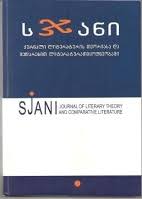“თეთრი მანგურის” მიმართება სამონადირეო ბალადებთან
The Relation of the “White Mangur” to the Hunting Ballads
Author(s): Otar OnianiSubject(s): Cultural history, Customs / Folklore, Oral history
Published by: ლიტერატურის ინსტიტუტის გამომცემლობა
Keywords: “White Mangur”; Georgian hunting epic;
Summary/Abstract: Among the ballad-songs of the myth cycle devoted to the Goddess of hunting Dali, the “White Mangur” is distinct for thematic novelty and archaism, high artistry and complicated religious practices. It has established its unique place among Georgian as well as mythological characters in general. The White Mangur is the most outstanding monument of the Georgian hunting epic. An in-depth penetration into its complex thematic world implies an appropriate scientific-based comprehension not only of the Svan, but also the entire Georgian oral tradition, beliefs and practices, its relationship to other monuments. In order to establish specific features of the monument under discussion, it is necessary to take into consideration the entire material of the Dali cycle, both poetic and prosaic which is preserved with all its archaic diversity and artistic power only in the Svan folklore. In the first place we should determine its relation to other ballads: Betkil, The Hunter Chorla, Kala, etc. The content of a given ballad makes ponder continuously, especially the introduction, which is completely devoted to the demonstration of Mangur’s personal dignity. It should be noted in advance that White Mangur is a qualitatively new folk hero of not only Georgian hunting epic, but mythology as a whole. Similar versatility is not observed in the deeds of any of the mythological characters; he is a hero of universal content. The introduction itself raises many questions. It has no analogue in the myths of the Dali cycle. “White Mangur renowned in Svanetia, White Mangur! Your style of life was good for you: you used to winnow your grain in Tsvirmi; you had a drying-room for grain in Ipari; a threshing-floor in Kala you had, so it seems. Your ploughing lands are in Lakhamuli, the meadows in Shkhara are yours. The devs visit you to rake with their rakes, Dalis help to reap… Your marani is full of kvevris; it is filled with Imeretian wine.
Journal: სჯანი
- Issue Year: 2019
- Issue No: 20/2
- Page Range: 262-281
- Page Count: 20
- Language: Georgian

